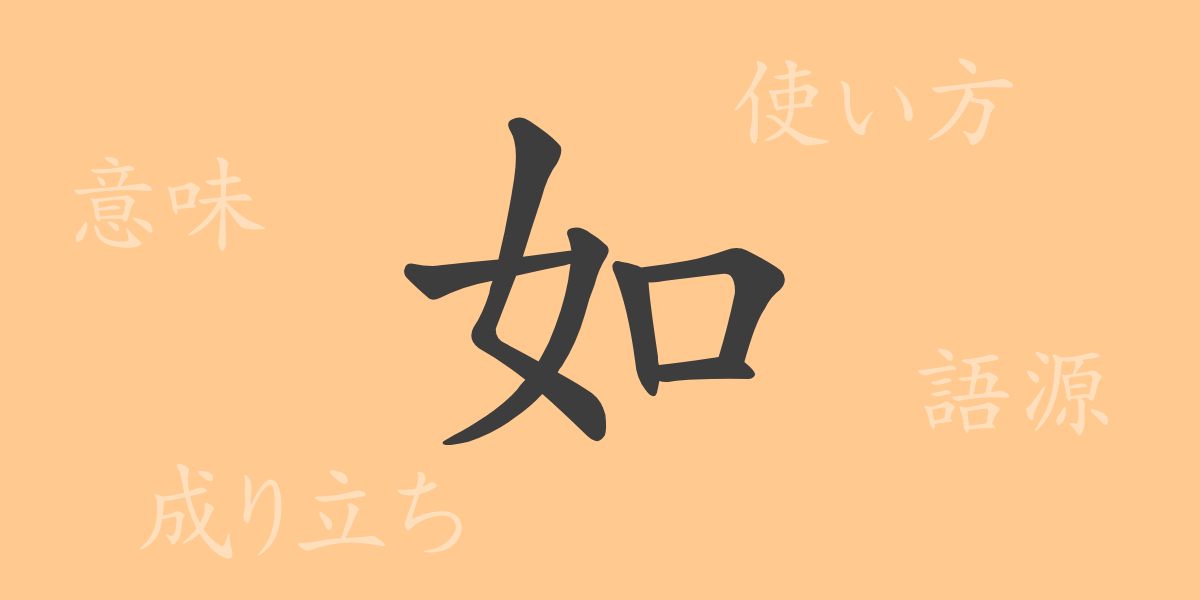The Kanji ‘如’ (にょ/ごとし), while commonly used in Japanese, holds intriguing depths of meaning that enrich language and delicate expressions. This article explores the character ‘如’, from its origins and meanings to its applications, as well as idiomatic expressions and proverbs, enhancing our understanding of Japanese linguistics.
Origins of 如 (にょ/ごとし)
The Kanji ‘如’ has its origins in ancient China, incorporating elements of pictographs. Initially depicting a person’s stance, it evolved to represent similarity or being in a state. Thus, ‘如’ became a Kanji used for comparisons and analogies, integrated into the Japanese language over time.
Meaning and Usage of 如 (にょ/ごとし)
The character ‘如’ means ‘like’ or ‘as if’. It is frequently used in metaphors and similes. In the form ‘如し’, it is often employed to denote conditions such as ‘if’ in contexts that suggest hypothetical situations.
Readings, Stroke Count, and Radical of 如 (にょ/ごとし)
Understanding ‘如’ involves its readings, composition, and structural elements:
- Readings: On’yomi ‘ジョ’, Kun’yomi ‘ごとし’, ‘にょ’
- Stroke Count: ‘如’ consists of 6 strokes.
- Radical: The radical of this Kanji is ‘女部 (おんなへん)’.
Idioms, Phrases, and Proverbs Using 如 (にょ/ごとし) and Their Meanings
‘如’ appears in many Japanese idioms and phrases that enrich the language’s expressive range. Here are a few examples:
- 如意 (にょい) – Things going as one wishes.
- 如実 (にょじつ) – The true state of things as they are.
- 如才ない (にょさいない) – Being unpretentious and natural.
- 案の定 (あんのじょう) – As expected, things turning out as thought.
- 事実如何 (じじつにょかい) – The truth of the matter, the actual situation.
These expressions are frequently used in everyday life, effectively conveying nuances in Japanese.
Conclusion on 如 (にょ/ごとし)
The Kanji ‘如’ has evolved through the ages, embedding itself deeply in the Japanese language. From expressions of comparison and similarity, it has generated various idioms and phrases, becoming an indispensable element of communication. Through this article, we hope you’ve gained a deeper appreciation of the multifaceted nature and charm of ‘如’.

























